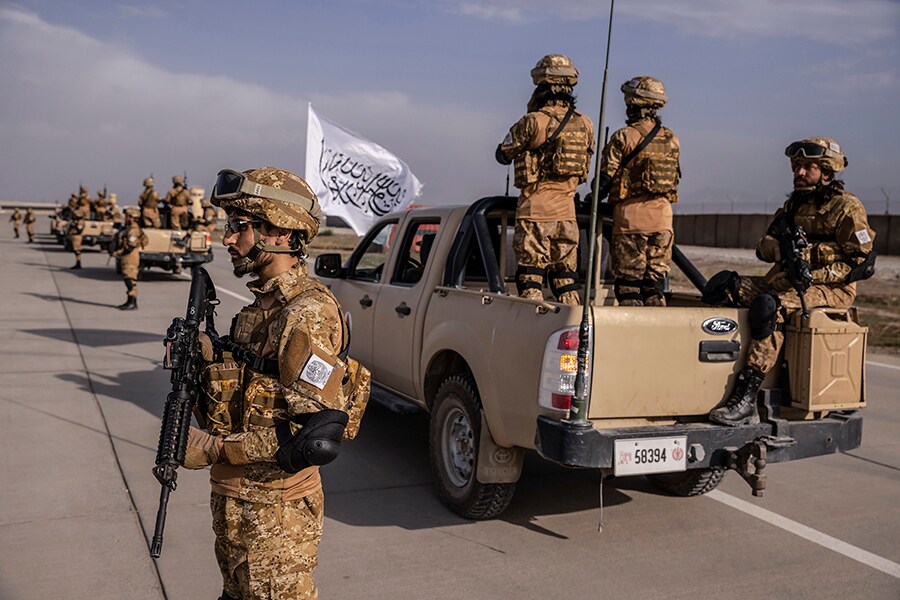
For some, Afghanistan outcome affirms a warning: Beware the blob
The term "Blob" is generally understood to describe members of the mainstream foreign-policy establishment who share a collective belief in the obligation of the US to pursue an aggressive, interventionist policy in the post-9/11 world
 Members of an elite Taliban unit stationed at the airport in Kabul, Afghanistan, Sept. 3, 2021. The final withdrawal from Afghanistan has prompted much discussion of “The Blob” — the mainstream foreign-policy establishment that shares a collective belief in the obligation of the United States to pursue an aggressive, interventionist policy in the post-9/11 world.
Members of an elite Taliban unit stationed at the airport in Kabul, Afghanistan, Sept. 3, 2021. The final withdrawal from Afghanistan has prompted much discussion of “The Blob” — the mainstream foreign-policy establishment that shares a collective belief in the obligation of the United States to pursue an aggressive, interventionist policy in the post-9/11 world.
Image: Victor J. Blue/The New York Times
First there was the Biden administration’s withdrawal from Afghanistan. Then there was the chorus of disapproval. And then, as is so often the case in U.S. foreign policy, there was the Blob.
“‘The Blob’ turns on Jake,” Alex Thompson and Tina Sfondeles wrote in Politico, referring to President Joe Biden’s national security adviser, Jake Sullivan. And then: “I’ve got to say hats off to the Blob on this whole Afghanistan thing,” commentator Matthew Yglesias said sarcastically on Twitter. “They couldn’t achieve any of their stated war aims, but they’ve proven they can absolutely wreck you politically.”
What is this Blob of which they speak? What does it have to do with the Taliban takeover of Afghanistan and whether they can actually govern? And why, like the nebulous malevolent organism in the 1958 horror film with which it shares a name, is it perpetually lurking around, sucking up everything in its path?
The term “Blob” is generally understood to describe members of the mainstream foreign-policy establishment — government officials, academics, Council on Foreign Relations panelists, television talking heads and the like — who share a collective belief in the obligation of the United States to pursue an aggressive, interventionist policy in the post-9/11 world. The wars in Iraq and Afghanistan are seen in this context as Blob-approved.
This foreign-policy philosophy has its origins in the post-World War II view of American exceptionalism, epitomized by officials like Dean Acheson, that U.S. military intervention in foreign conflicts was vital to defending U.S. interests and generally did more good than harm. To the extent that the Blob holds this view, the Afghanistan withdrawal was a defeat for its position. For Blob critics, it was more fodder for discussing why the Blob gets things so wrong.
©2019 New York Times News Service




